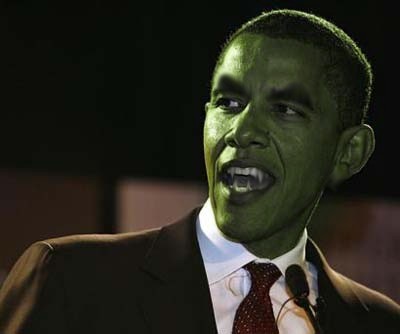In a powerful one-two punch, The New York Times and Newsweek have just come out with extensively reported articles demonstrating how personally and deeply involved Obama is with killing terrorists--a lot of terrorists. Even to the point of occasionally taking out innocents. (Both stories are very detailed followups to an article National Journal/Atlantic published a year ago.)
The question is, now that the image of Obama-as-hard-power-president seems to be settling in as conventional wisdom, how will that play at the polls? Recent results, for example the NYT/CBS poll in April, suggest that Obama and Romney are evenly matched when it comes to commander-in-chief credentials. That's actually pretty good for a Democrat, indicating that at worst Obama may have successfully neutralized what has traditionally been a GOP strong point.
Expect a lot more of this hard-power-sell from Obamaland in the months ahead. As we reported some months ago, the Obama camp is gearing up to present the president as the toughest Dem on national security since JFK -- throwing off, at long last, the Vietnam albatross that has weighed the party down since LBJ split the Dems over that unpopular war and Ronald Reagan took up the banner of strong-on-defense. No surprise: both the NYT and Newsweek pieces (the latter is excerpted from a book) indicate that the administration was quite cooperative on the reporting.
What both pieces are missing, however, is a strong sense of the dysfunctionality that also haunts the administration on foreign policy. Obama is keen to run his own foreign policy out of the White House, but unlike, say, Richard Nixon, he has no Kissinger around him, no grand visionary to conceive of and oversee a larger vision (Hillary Clinton is considered mainly an executor of policy and public diplomat). Instead his palace guard consists largely of political aides at his side since his 2008 campaign. The result is while Obama can oversee a tough counterterror strategy, he is lagging in articulating a larger diplomatic strategy in which to embed it, especially in Pakistan and South-Central Asia.
The commander-in-chief edge probably won't be a decisive issue, but in a too-close-to-call contest it could make a crucial difference come November, especially if there's an "October surprise" of some kind on the terror front that plays to the president's advantage.

No comments:
Post a Comment